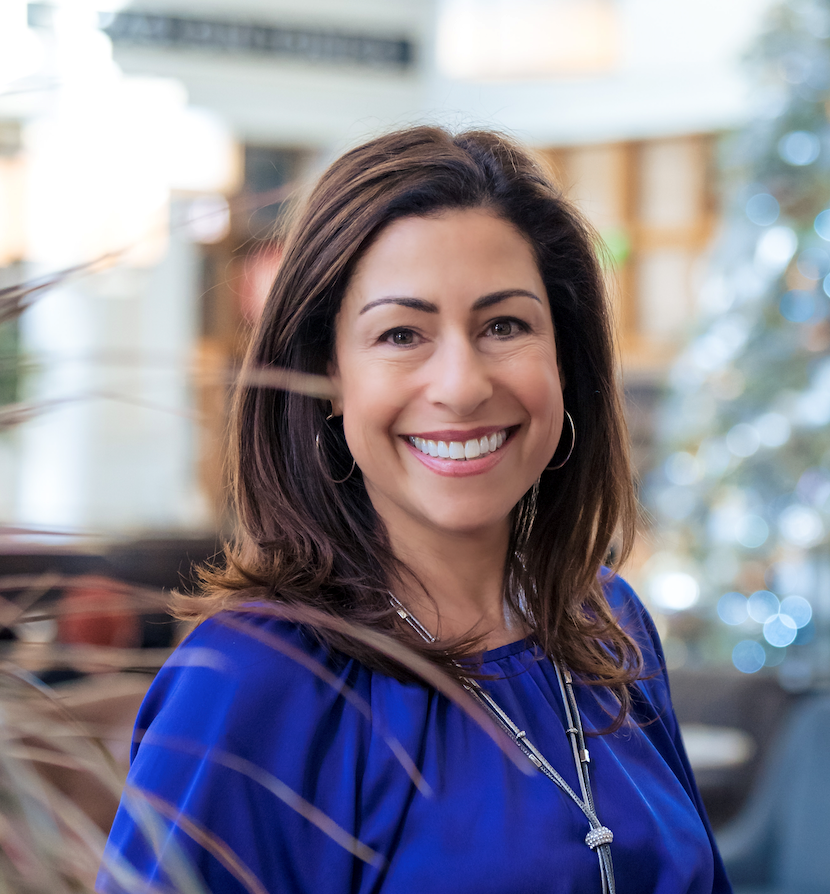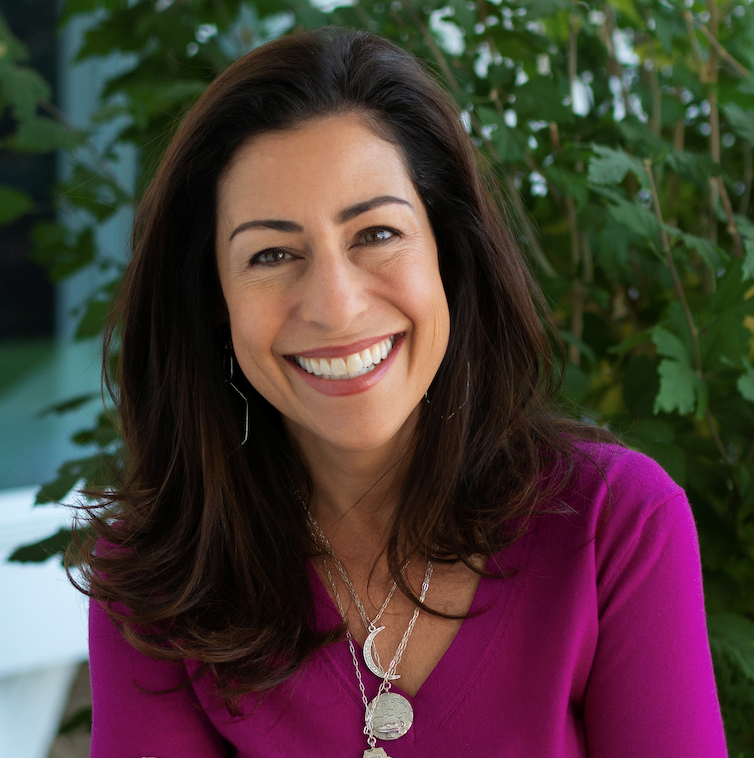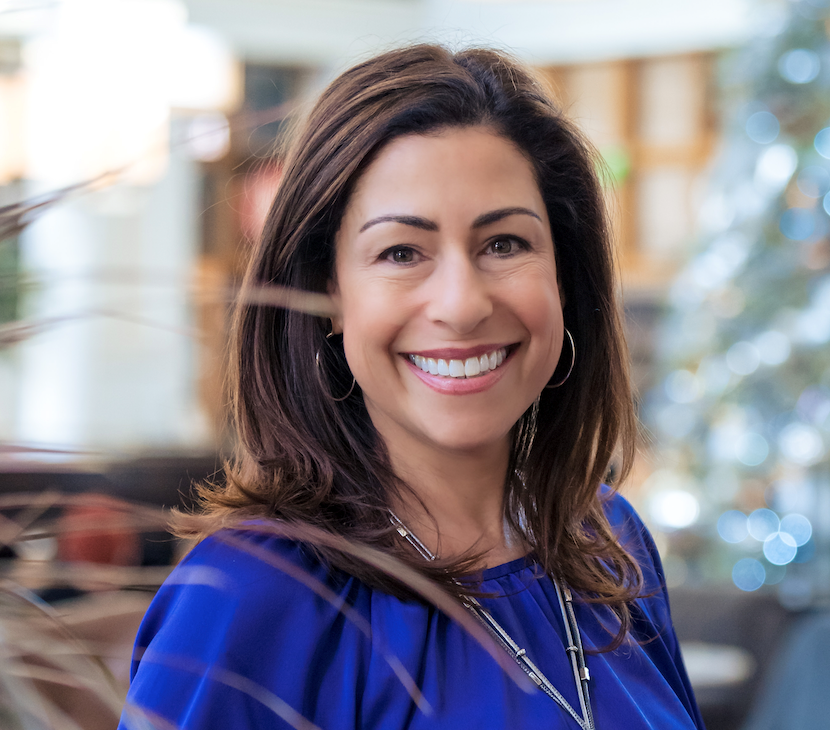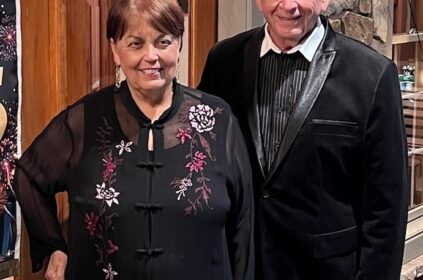According to a 2022 review in Cancer (Basel), an estimated one million cancer diagnoses are made in women of reproductive age each year. Of these, 70-75% are interested in parenthood. But chemotherapy and other cancer treatments can significantly decrease fertility. In fact, the same article posits, 80% of cancer survivors interested in parenthood have reduced fertility.
When Marcia was 27 years old, newly married and ready to start a family, she wasn’t prepared for what the coming years would bring. Her symptoms began with uncomfortable bloating, then painful urination. The pressure in her pelvic area made her believe she had a urinary tract infection. However, the physician she visited wasn’t so sure. Just in case, the physician said, she wanted to do a pelvic exam.
The ultrasound found a tumor on Marcia’s ovary. Immediately, Marcia was concerned. She asked the doctor if it could be cancer:
“No, the doctor said, you’re too young to have cancer.”
As care plans were drawn up, Marcia learned that she would have to undergo surgery to remove the tumor. She shares:
“I worried aloud if I would still be able to have kids, and my doctor said yes. I could have kids with the other ovary. Having children was always something I dreamed of.”
When the day of the surgery came, Marcia went in feeling confident. The tumor would be removed, and she could move on with her life. But life had other, more terrifying plans. Says Marcia:
“My doctor was 6 months pregnant. When I woke up from this surgery, I was eye-level with her pregnant belly. And she was telling me that they found cancer. That I had a complete hysterectomy. That I would never have kids. The infertility was more emotionally devastating than the cancer.”
In the years since, Marcia and her husband conceived two children through surrogacy; Marcia is now a passionate advocate for fertility support for women going through their cancer journeys. In her discussion with What Next, Marcia discusses the surrogacy journey, cancer and family planning, and why she chose to share her story with Survivorship Today, an initiative from Bristol Myers Squibb that aims to share stories of people across the country who have been affected by cancer and advance our collective understanding of what it’s like to live with the disease today.

Receiving a Stage III Ovarian Cancer Diagnosis
The first days in the hospital were a blur. Alongside the hysterectomy, doctors removed localized lymph nodes. The pain was astounding – and nobody seemed to have answers to what the next steps were for treatment. Marcia says:
“I was in the most pain I had ever been in, and I kept getting hit with something new. That first week, I got out of the hospital and then had a severe bowel obstruction. The treatment for that is horrific. I was in the hospital for another week, but right when I was about to go home, doctors told me my cancer had spread. I had stage III ovarian cancer. Now I needed six months of chemotherapy.”
The diagnosis felt overwhelming, and Marcia didn’t know where to turn. Her husband was struggling with the diagnosis, and she felt uncomfortable adding more to his plate. She asked her doctors if they knew of anybody else around her age who was dealing with ovarian cancer and fertility loss. They couldn’t tell her, they said, because of privacy laws.
However, she did find solace in an oncology social worker she connected with at the hospital. She found building this connection to be the most cathartic element of her journey, noting:
“I didn’t really worry about dying, but I was lost about how to move forward. Was being a mom possible for me anymore? The oncology social worker taught me, therapeutically, how to grieve the child I thought I’d have. Even if you’re not grieving a real person, you’re grieving the family you thought you’d have. If you don’t process the grief, the emotional healing takes longer. Going through the stages of grief with a mental health professional made me a healthier version of myself.“
If you have cancer and are interested in speaking with an oncology social worker, speak to your oncologist; they can connect you. Also consider contacting Cancer Support Community’s Cancer Support Helpline, which offers free, personalized support from resource specialists and community navigators.
The Surrogacy Journey
Marcia’s infertility remained upsetting, and her advocacy work has since centered around providing connection and community to people dealing with a cancer diagnosis. Says Marcia:
“When doctors are treating any patient of child-bearing age, they should open a conversation around fertility and family-planning goals. With the tumor on my reproductive organs, it would have been so valuable to me to have had a deeper conversation. I feel like this aspect of our healthcare system could be improved. Fertility should not be an afterthought.”
Years later, determined to start a family, Marcia and her husband began exploring adoption and surrogacy. However, they quickly came to the determination that surrogacy was the right move for them:
“With a history of cancer, the adoption process becomes more complicated. It’s a mark against you, as cancer can recur. I didn’t like the idea that someone could tell me if I can have children or not. For my husband, having a biological connection was important, so we leaned towards surrogacy. It was amazing. It wasn’t an easy path, but the surrogate mom that we found was perfect for us. We had two embryos and now have twin boys who just graduated high school.”
Launching a Lifeline
Although her surrogacy journey was ultimately successful, and Marcia’s friends and family offered as much support as they could, there were many times when her diagnosis still felt overwhelming:
“People would call me and ask, ‘What can I do to help?’ and I’d have no idea. My husband would write down a list of people who called. I’d wake up and feel guilty. I didn’t want to call them back and repeat the same depressing information.”
In 2007, as a solution to her problem, Marcia conceptualized MyLifeLine, explaining:
“MyLifeLine became a platform where someone could create their own personal, private website to mobilize support. You could post visiting hours, for meal deliveries, and share other vital information; people could even volunteer to help you care for your kids. This online community provided a sense of support without the guesswork and connected to resources like Imerman Angels. I wanted to connect cancer patients with social, emotional, and practical support while also providing discussion boards so people could see they weren’t alone. Founding MyLifeLine is one of the most rewarding things I’ve done.”
To date, MyLifeLine has served over 300,000 people impacted by cancer. In 2018, MyLifeLine merged with Cancer Support Community, a nonprofit organization designed to uplift and strengthen people through the treatment process and beyond. Marcia served as the Vice President of Digital Strategy for CSC before becoming the Chief Culture Officer, where she could establish initiatives for employee health and well-being. Today, she continues this mission as an organizational culture consultant and leadership coach. Her passion is to help patient advocates and nonprofit professionals to thrive at work and in life.
Reflecting, Marcia is thrilled that MyLifeLine merged with the Cancer Support Community. She notes:
“Cancer Support Community makes a huge impact. They have so many resources, virtual programs, a cancer experience registry, and nearly 200 hospital and healthcare partnerships and in-person support centers for yoga, meditation, community, and connection. Cancer Support Community offers the opportunity to speak with experts and the advocacy space and connect with people like you who might be struggling in similar ways. I am forever grateful for the impact they have had on my life and the lives of others going through cancer.”

It was through Cancer Support Community that Marcia connected with Survivorship Today; the pairing developed through a shared desire to explore stories through video and reach people who might be looking for support within the cancer community. For example, Marcia shared her story for Survivorship Today to discuss fertility and family planning. She states:
“Infertility and cancer are not the same diagnosis and I’m so glad that Survivorship Today is bringing this to the forefront of conversation. We need to think of this as two medical conditions so that fertility can be protected before cancer treatment, if having children is a goal of the patient. I hope that through these conversations, we can encourage physicians to do a bigger intake around family planning goals. Survivorship Today stories can make people think differently. As cancer survivors, we already face anxiety. After active treatment ends, the emotional piece doesn’t go away. People think you’re healed and done, but you can experience PTSD-like symptoms resulting from trauma, and infertility brings another mountain to climb. My hope is that medical professionals know that cancer can bring a double diagnosis with differing treatment paths.”
As Marcia looks towards the future, she knows that her focus will remain on advocacy, inclusivity, and family support. At the end of the day, this experience is hard but there are truly gifts in the hardship. It’s the people you connect with during the journey who will bring unexpected light into the darkness. If you’re going through cancer, you are not alone. Please head to Survivorship-Today.com or Cancer Support Community to learn more.
Editor’s Note: Get Involved
Cancer doesn’t discriminate. WHATNEXT and its partners are interested in amplifying the voices of those from all identities and backgrounds. If you have a cancer journey to share, reach out here to learn more about how your voice can help spread awareness and inspire individuals from all walks of life.
gyn cancer gynecological cancer interview ovarian cancer patient stories series
Last modified: July 31, 2024











